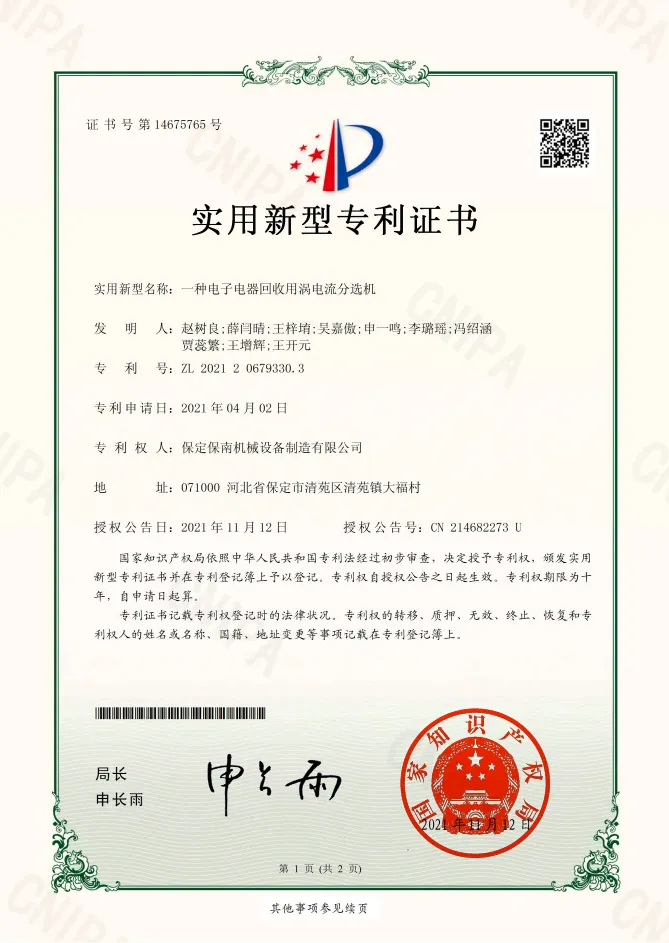

Jul . 27, 2024 15:59 Back to list
The Metal Chipper Machine Revolutionizing Scrap Metal Processing
In the world of metal recycling and processing, efficiency and precision are paramount. With the increasing demand for recycled materials, businesses and industries are constantly seeking innovative machinery that can enhance operational efficiency. One such tool that has gained prominence in recent years is the metal chipper machine. This powerful equipment is designed to streamline the metal recycling process, effectively transforming scrap metal into reusable materials.
What is a Metal Chipper Machine?
A metal chipper machine, often referred to as a metal shredder, is a mechanical device used to shred metal into smaller pieces or chips. The primary function of this machine is to reduce large metal sections, such as old car parts, industrial scrap, and other forms of excess metal waste, into manageable and transportable sizes. The resulting metal chips can be easily melted down and repurposed, facilitating a more sustainable manufacturing process.
How Does it Work?
The operation of a metal chipper machine is relatively straightforward. The machine typically consists of several key components, including powerful rotating blades, a feed hopper, and an output conveyor system. The process begins when metal waste is fed into the hopper. As the material enters the machine, the rotating blades come into action, shredding the metal with force. The blades are engineered to withstand significant wear and tear, ensuring longevity and effectiveness in handling various metal types, including aluminum, steel, and copper.
Once the metal is shredded into chips, the output conveyor system transports the material for further processing. Depending on the specific requirements, these chips can either be packaged for sale or taken to be melted down in a foundry. This efficient cycle not only saves space but also minimizes the carbon footprint associated with metal processing.
Benefits of Using a Metal Chipper Machine

1. Improved Efficiency One of the standout features of metal chipper machines is their ability to process large volumes of metal quickly. This efficiency translates to reduced labor costs and increased throughput for recycling facilities or manufacturing plants.
2. Enhanced Safety The design of metal chipper machines prioritizes safety. Unlike manual shredding methods, which can pose significant risks to workers, automated shredders minimize human exposure to hazardous materials and heavy machinery.
3. Cost-Effective Investing in a metal chipper machine can yield substantial long-term savings. By turning scrap into reusable chips, companies can cut down on raw material costs and capitalize on the growing scrap metal market.
4. Environmental Sustainability The recycling of metal is a vital aspect of waste management and environmental conservation. By facilitating the recycling process, metal chipper machines contribute to a circular economy where materials are reused rather than discarded.
5. Versatility These machines are not limited to a specific type of metal. They can effectively process diverse materials, making them a versatile addition to any recycling facility or manufacturing plant.
Conclusion
In conclusion, the metal chipper machine stands as a powerful ally in the metal recycling industry. Its ability to efficiently process scrap metal not only streamlines operations but also promotes environmental sustainability. As businesses continue to seek innovative solutions to reduce waste and increase efficiency, the importance of machines like the metal chipper will only continue to grow. Embracing this technology is not just a step towards operational enhancement; it is a commitment to a more sustainable future for our planet.
Latest news
The Future of Metal Recycling: Revolutionizing Waste Management
NewsMay.14,2025
Optimizing Waste with Recycling Lines
NewsMay.14,2025
Municipal Solid Waste Sorting Line: Revolutionizing Waste Management
NewsMay.14,2025
Metal Shredders: Essential Tools for Efficient Recycling
NewsMay.14,2025
Maximize Your Profits with a Copper Wire Granulator
NewsMay.14,2025
Home Metal Shredder: A Smart Choice for Your Home Recycling Needs
NewsMay.14,2025